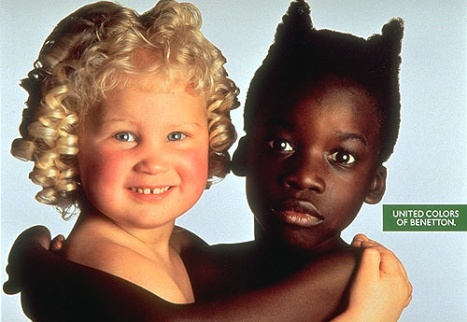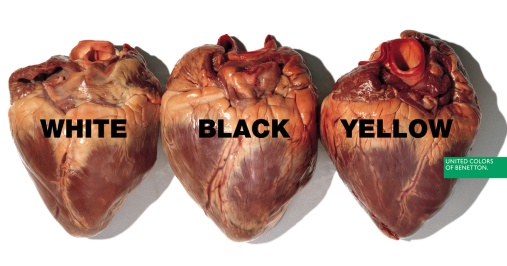
Coming to age in America in the 1980's & 1990's it was hard not to be influenced by the creative advertising campaigns of Benetton and their ability to make social awareness 'cool' under the direction of photographer Oliviero Toscani.
Explained best by this website:
"By the mid 1980's it was no longer possible to ignore Benetton's existence, which was due not only to its products, but also and overall to its innovative communication policy. Until 1982, their advertising campaigns emphasized their colors and promoted the genetic makeup of the brand without adding value to it. An encounter between Luciano Benetton and the photographer Oliviero Toscani would drastically change this established order and attract the media's attention.
It was in 1982 that Benetton first met Toscani. The two men would together decide to make image prevail over clothing, message over product. Their intention was to emphasize the idea of cultural diversity directly evoked by the famous "United Colors" of Benetton.
The duo work amazingly well together, and the advertisements were covered with photos of mixed-race people, evoking difference in a positive way. But overall, the image remained politically correct, somewhat similar to the Unicef campaigns. A few more years would pass before Benetton would become synonymous with controversy.

In 1990, the communication strategy radicalized and the brand took clear positions on controversial issues. Shocking images of AIDS, international conflicts, human rights violations, etc were diffused, to an extreme that was almost unbearable. Gone were the cheerful colors -- Benetton positioned itself as a veritable fly in society's ointment, and Toscani's photos became inseparable from the brand.
Luciano Benetton declared at the time, 'We did not create our advertisements in order to provoke, but to make people talk, to develop citizen consciousness.'"